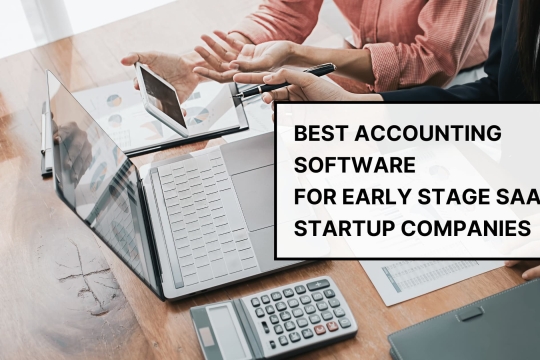
Choosing the right customer relationship management (CRM) system can make or break how a growing business manages its sales and marketing efforts. Two names dominate the space: HubSpot and Salesforce. Both are powerful CRM tools, but they serve different types of teams and needs.
This comparison explores HubSpot vs Salesforce in detail. It breaks down their strengths, weaknesses, pricing structures, and features, allowing sales and marketing teams to decide which platform is the better fit. Whether you’re a small business just starting with a free plan or an enterprise managing complex workflows, the goal is to provide clear guidance for your next decision.
A Snapshot: HubSpot vs Salesforce
HubSpot and Salesforce are two of the most widely used crm software platforms. Both help businesses manage customer relationships, track sales pipelines, and run marketing campaigns, but their approaches differ.
HubSpot is designed for accessibility, offering a free crm and simple upgrade paths through its Sales Hub, Marketing Hub, and Service Hub. It appeals to small businesses and growing teams thanks to its user-friendly interface and tiered pricing structure.
Salesforce, by contrast, is known for its depth and advanced functionality. Its Sales Cloud, Marketing Cloud, and Service Cloud are highly customizable, but the platform often requires more setup, ongoing maintenance, and investment. It’s particularly strong for larger businesses with complex workflows.
HubSpot vs Salesforce Snapshot Table
| Feature/Aspect | HubSpot | Salesforce |
|---|---|---|
| Price | Free plan + paid tiers from $20/user/month | Paid plans only; start ~$25/user/month |
| Best For | Small businesses & growing teams | Enterprises & businesses with complex workflows |
| Key Strength | Intuitive user interface, all-in-one platform | Deep customization, advanced reporting, and AI-powered features |
| Notable Weakness | Costs increase as business grows | Steep learning curve, higher ongoing maintenance |
Pros & Cons
HubSpot
- Free plan with core crm functionality for managing contacts and deals
- User-friendly interface that reduces the learning curve for small businesses
- Strong sales hub and marketing hub with workflow automation and email marketing tools
- Extensive training resources through HubSpot Academy
- Easy integration with third-party apps, including Gmail, Outlook, and ecommerce tools
- Scales well for teams that want to start small and expand gradually
- Escalating costs as advanced features and additional contacts are added
- Reporting is less advanced compared to Salesforce’s analytics
- Hidden costs for onboarding and higher-tier hubs
Salesforce
- Highly customizable Salesforce Sales Cloud with advanced reporting and analytics
- AI-driven tools like Einstein and predictive lead scoring for sales and marketing teams
- Strong ecosystem of integrations via AppExchange and third-party apps
- Comprehensive lead management and sales process automation
- Designed to handle enterprise-level customer data and service teams
- Steeper learning curve, requiring training to use effectively
- Often needs third-party consultants for customizations and ongoing maintenance
- Higher pricing models with fewer inclusions at the entry level
- Longer implementation time compared to HubSpot
Core Features, Ecosystem & Integratability

HubSpot organizes its CRM tools into hubs — Sales Hub, Marketing Hub, Service Hub, and Content Hub. Each hub adds functionality on the same platform, making it straightforward for small businesses to manage sales pipelines, email marketing, customer interactions, and support in one place. Workflow automation and contact management are core strengths, particularly when combined with integrations such as Gmail, Slack, and Shopify.
Salesforce splits its ecosystem into Sales Cloud, Service Cloud, and Marketing Cloud. Each cloud can be deployed individually or combined, allowing businesses to build a highly customized CRM environment. Features such as advanced reporting, predictive lead scoring, and sales analytics make Salesforce appealing for enterprises, though customization often requires technical expertise.
Feature Comparison
| Feature/Aspect | HubSpot | Salesforce |
|---|---|---|
| Core CRM | Free CRM with contacts, deals, and pipelines | Sales Cloud with robust lead management |
| Marketing Automation | Built into Marketing Hub Pro and Enterprise | Requires Marketing Cloud, sold separately |
| Advanced Reporting | Available in Pro plans, but with limited depth | Enterprise-grade reporting and analytics |
| AI & Automation | Predictive lead scoring, chatbots in Enterprise | Einstein AI and Agentforce autonomous tools |
| Integrations | 1,000+ third-party apps | Large AppExchange marketplace with thousands of apps |
| Customization | Limited custom objects and workflows | Highly customizable, often requires consultants |
Ease of Use
HubSpot is widely recognized for its intuitive user interface. The platform is designed to enable small businesses and growing teams to get started without a steep learning curve. Setting up pipelines, creating workflows, and sending marketing emails can be done with minimal technical knowledge, and onboarding is supported by HubSpot Academy.
Salesforce, while powerful, is more complex. Its interface has improved over time, but the depth of its features often requires structured training. Customizing dashboards, managing advanced workflows, and setting up integrations typically require more time. For enterprises with dedicated administrators or consultants, the extra complexity pays off; however, smaller teams may find the platform harder to adopt quickly.
Pricing & Plans
Pricing is a key differentiator between HubSpot and Salesforce. The two platforms approach CRM value propositions in different ways. HubSpot offers accessible entry points with optional expansion, while Salesforce targets scalable, modular enterprise solutions.
HubSpot Pricing
- Marketing Hub – Starter
- $9 per seat/month when billed annually
- $15 per seat/month when billed monthly
- Includes 1,000 marketing contacts, email sends (5x contact tier), removal of HubSpot branding, basic automation, and messaging insights
- Sales Hub
- Starter: $20 per user/month (monthly) or $15 (annual, limited-time)
- Professional: $100 per sales seat/month, additional core seats at $50
- Enterprise: $150 per sales seat/month, additional core seats at $75
- Estimated Annual Spend
Mid-sized businesses typically spend between $10,000 and $50,000 per year, depending on their hub selections, seat counts, and contact tiers. Implementation can add $12,000 to $ 60,000 or more.
Salesforce Pricing
- Starter Suite (includes Sales, Marketing, and Service basics): $25 per user/month, billed monthly or annually
- Sales Cloud Editions:
- Pro Suite: $100 per user/month, billed annually
- Enterprise: $175 per user/month, billed annually
- Unlimited: $350+ per user/month, billed annually
- AI Add-on: Agentforce for Sales starts at $125 per user/month
- Price Update: 6% list price increase announced for Enterprise and Unlimited editions, effective August 1, 2025
- Overall Cost Estimate
Businesses typically spend between $9,000 and $27,000 annually on the software itself. Implementation adds approximately $ 25,000 or more for setup and customization.
Summary Table: 2025 Pricing Overview
| Platform | Edition / Tier | Price (per user/month) | Notes |
|---|---|---|---|
| HubSpot | Marketing Hub Starter | $9 (annual) / $15 (monthly) | 1,000 contacts, basic automation |
| Sales Hub Starter | $20 (monthly); $15 (annual) | Core seat; limited-time discount | |
| Sales Hub Professional | $100 per sales seat/month | Additional core seats at $50 | |
| Sales Hub Enterprise | $150 per sales seat/month | Additional core seats at $75 | |
| Salesforce | Starter Suite | $25 | CRM basics bundled |
| Pro Suite | $100 | CRM with AppExchange access | |
| Sales Enterprise | $175 | AI-ready, advanced features | |
| Unlimited | $350+ | Top-tier CRM with full support | |
| Agentforce Add-on | $125 | AI automation features | |
| Price Increase | +6% on Enterprise & Unlimited | Effective Aug 1, 2025 |
Customer Support & Community

HubSpot provides a range of support options depending on the plan. Free users have access to the knowledge base and community forums, while paid plans include email and chat support. Professional and Enterprise tiers add phone support and one-on-one onboarding. HubSpot Academy is a significant strength, offering free training courses that help marketing and sales teams maximize the platform's potential.
Salesforce provides extensive support, but access to it depends on the pricing tier and support package purchased. Standard support includes documentation, forums, and access to Trailhead, its training platform. Higher-tier customers can purchase Premier or Signature Success Plans, which provide faster response times and dedicated account managers. Many enterprises also work with certified Salesforce consultants for ongoing maintenance and custom projects.
Best Use Cases: Who Should Choose Which?
Choose HubSpot if:
- You’re a small business or growing team looking for an easy-to-use CRM with a free plan to get started.
- You want marketing and sales tools on the same platform without heavy customization.
- You prefer a clean user interface that’s quick to learn for marketing teams and sales teams.
- You want built-in resources, such as HubSpot Academy, to help with onboarding and skill development.
Pick Salesforce if:
- You run a mid-sized or enterprise business with complex sales pipelines and multiple service teams.
- You need advanced functionality such as predictive lead scoring, advanced reporting, and AI-driven automation.
- You require deep customization and integration with other enterprise apps to manage customer data.
- You have the resources for ongoing maintenance, including third-party consultants or dedicated administrators to manage the system.
Alternatives to Consider
While HubSpot and Salesforce dominate the CRM world, they aren’t the only options worth exploring. Some businesses may prefer simpler tools with lower costs, while others look for platforms tailored to specific industries or team sizes. Below are five alternatives that sales and marketing teams can consider depending on their needs.
Zoho CRM
Zoho CRM is a flexible and affordable option for small businesses. It provides lead management, sales pipelines, and workflow automation at a fraction of the cost of Salesforce or HubSpot. Its large suite of business apps also makes it appealing to companies that want everything under one roof.
Pipedrive
Pipedrive is a sales-focused CRM that emphasizes simplicity and usability. It’s ideal for businesses that want to prioritize deal tracking and pipeline management without the overhead of complex marketing automation.
Microsoft Dynamics 365
Microsoft Dynamics 365 is a powerful CRM and an enterprise resource planning (ERP) solution for larger organizations. It integrates seamlessly with Microsoft tools, such as Outlook and Teams, making it an attractive option for businesses already within the Microsoft ecosystem.
Freshsales
Freshsales, part of the Freshworks suite, provides a user-friendly CRM with built-in telephony, email, and workflow automation capabilities. It’s a good choice for small to mid-sized businesses that require affordable CRM software with robust contact management capabilities.
Pulse
Pulse is a modern CRM alternative positioned for growing businesses that want clear, actionable insights into their sales process. It focuses on providing visibility into customer interactions, lead management, and sales analytics in a streamlined platform.
FAQs
HubSpot CRM is designed for accessibility, offering a free plan and simple upgrades for small to mid-sized businesses. Salesforce Sales Cloud is built for scalability, offering advanced reporting, AI tools, and deep customization for enterprises.
HubSpot’s Marketing Hub includes automation tools at the Professional tier and above, making it straightforward to set up campaigns. Salesforce’s Marketing Cloud offers more advanced functionality but comes at a higher cost and requires more setup.
Salesforce is known for its enterprise-grade analytics, predictive lead scoring, and AI-powered insights. HubSpot provides reporting across its hubs, but its analytics depth is more limited compared to Salesforce.
No, Salesforce does not offer a free plan. HubSpot, however, provides a free CRM with essential features for contact management, deals, and tasks.
HubSpot starts with a free plan and scales through affordable entry tiers, but costs increase as the number of contacts and features grow. Salesforce starts at around $25 per user per month, with higher costs for Professional, Enterprise, and Unlimited editions.
Yes, both platforms offer extensive integration capabilities. HubSpot connects with over 1,000 apps, while Salesforce provides access to a larger marketplace through AppExchange.


